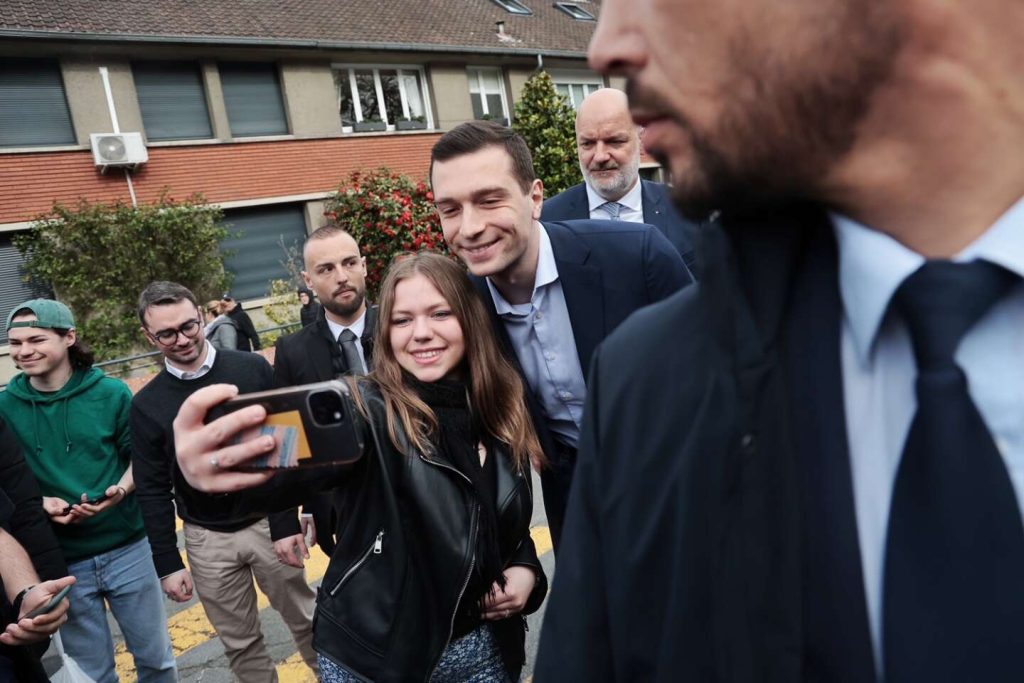Jordan Bardella chose to spend his time under the covered market of Cambrai, engaging with constituents, rather than facing criticism on a television debate. He spoke with a fishmonger, took selfies with supporters, and expressed concern about growing violence in France. Bardella, a member of the far-right Rassemblement National (RN) party, avoided a televised debate on April 10th, opting instead to visit the market and attend a campaign event in a region where the RN has support.
Bardella’s decision to skip the debate and instead focus on in-person campaigning was met with criticism, as he had previously expressed a desire for high-quality debates on European issues. Some speculated that Bardella may be avoiding the debate due to fear or a lack of preparedness. Despite this, Bardella remained resolute in his decision, stating that he would not be dictated to by opponents or the media and would continue with his campaign strategy as planned.
Since launching his European campaign in March, Bardella has shifted his focus away from discussing Europe and his party’s platform. Instead, he has been engaging with business leaders and using current events to attack the Macron government. However, Bardella has promised to participate in several debates leading up to the election on June 9th, including face-to-face debates with other candidates.
Bardella’s campaign comes at a time when the RN, formerly known as the National Front, is experiencing a rise in popularity in France. The party’s populist and nationalist message has struck a chord with many voters disillusioned with the current political establishment. Bardella’s decision to prioritize in-person campaigning over televised debates reflects his strategy of connecting directly with voters and avoiding contentious media interactions.
The RN’s focus on nationalist policies and Euroscepticism has drawn both criticism and support from various segments of French society. Bardella’s candidacy represents a continuation of the party’s efforts to challenge the status quo and push for a more nationalist agenda in European politics. His decision to prioritize campaigning in person may prove to be a successful strategy in appealing to voters disenchanted with traditional political discourse.
As the European election approaches, Bardella’s campaign will continue to focus on key issues such as immigration, security, and economic policy. His decision to bypass the televised debate in favor of direct voter engagement reflects a larger trend in European politics, where populist parties are increasingly using social media and grassroots campaigning to reach voters. Whether Bardella’s strategy will be successful in garnering support remains to be seen, but his willingness to engage directly with constituents may prove to be a powerful tool in rallying support for the RN.


